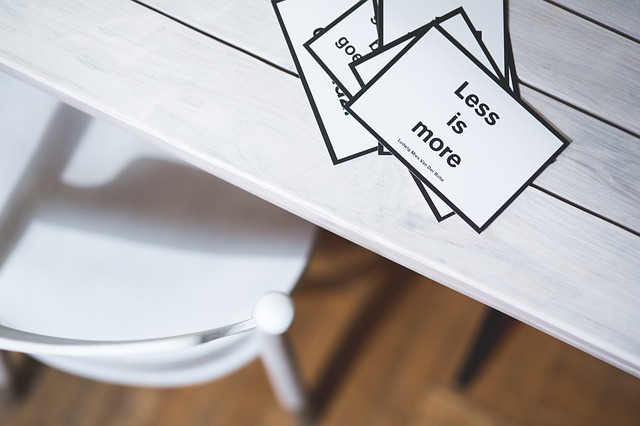“What did we do before we knew we needed all this stuff?“
My seventy-year-old friend suddenly paused in the middle of a story of her childhood and then asked me this question. While it was definitely a question, it seemed more like a statement. I was speechless. Simple things are profound. Life was much simpler when she was a child. There was less “stuff” to worry about. I thought about the car, the home, closets and drawers, stuff … stuff … stuff … to take care of, to worry about, to pay for…
“The more stuff you own, the more stuff owns you.”
We have all heard it. Most of us even believe it, but few of us change because of it. We spend our lives accumulating more and more stuff. (Unfortunately, despite the regular purges, I am no exception.)
Joshua Becker writes in his blog, Becoming Minimalist:
“The secret of health for both mind and body is not to mourn for the past, worry about the future, or anticipate troubles, but to live in the present moment wisely and earnestly.”
In his 10 Tips to Start Living in the Present, the first tip is minimalism. (Visit his blog to see the rest of the tips.)
1. Remove unneeded possessions. Minimalism forces you to live in the present. Removing items associated with past memories or lives frees us up to stop living in the past and start living in the present.
Most of us, he contends, would be more present if we had less stuff. For me, minimalism means getting rid of stuff. Panic sets in: what if I need that stuff someday? Joshua Becker helped me to see the other side of minimalism. Less stuff creates a richer life of intangibles — more time, more money, more freedom. Minimalism means clarifying what is really important in my life. Here is his definition.
“MINIMALISM: the intentional promotion of things we most value and the removal of anything that distracts us from them”
~Joshua Becker, The More of Less: Finding the Life You Want Under Everything You Own.
Get out there, get rid of stuff, and get present!

